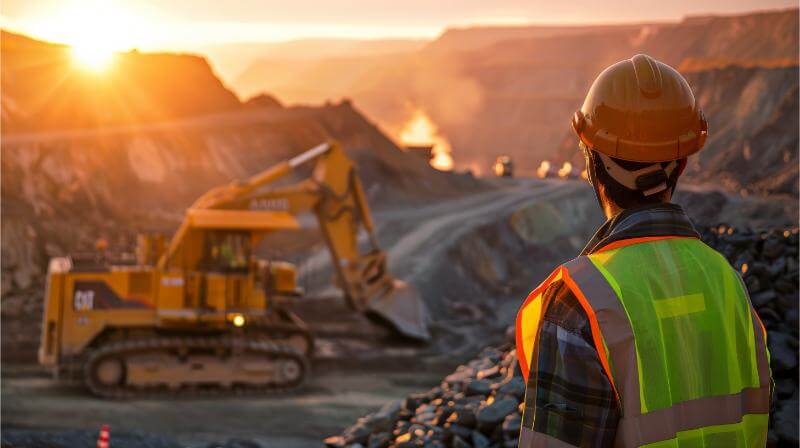
Site Remediation in Kent
Enquire Today For A Free No Obligation Quote
At Site Remediation, we specialise in restoring contaminated land and water to safe, usable conditions, offering comprehensive services from site assessment through to regulatory sign‑off in Kent and across the UK.
Whether you’re preparing a brownfield for redevelopment or cleaning up industrial waste, our team at site remediation manages all aspects—risk evaluation, system supply, hazardous material disposal, and compliance monitoring—ensuring efficient and responsible environmental restoration for clients.
How Is A Site Remediation Project Managed From Start To Finish In Kent?
The site remediation workflow in Kent begins with site investigation and risk assessment, followed by permit procurement and remediation plan finalisation.
We then supply required systems, mobilise crews, install treatment infrastructure, conduct ongoing monitoring, complete final validation testing, and deliver full documentation for regulatory closure.
What Services Are Included In A Site Remediation Project In Kent?
A full site remediation in Kent typically includes:
- Environmental assessment – Identify contamination risks through soil, water, and air sampling.
- Remediation plan development – Create a tailored action plan based on site conditions and regulatory needs.
- System and material procurement – Supply chemical agents, filtration units, liners, and treatment infrastructure.
- Containment and treatment system installation – Set up physical barriers and in-situ or ex-situ treatment technologies.
- Excavation and hazardous waste removal – Extract and dispose of contaminated soil or materials at licensed facilities.
- Compliance documentation – Prepare and submit risk assessments, waste tracking, and validation reports.
- Post-treatment verification – Conduct confirmatory testing to ensure contamination has been effectively mitigated.
How Much Does Site Remediation Cost In Kent ?
The cost of site remediation in Kent ranges from £10,000 to over £500,000.
The price depends on the site area, type of contamination, and level of remediation required.
Costs are primarily influenced by the nature of pollutants (e.g., hydrocarbon spills, asbestos, heavy metals), the need for advanced systems such as chemical injectors or filtration units, and regulatory requirements including soil analysis, compliance reporting, and ongoing environmental monitoring.
Contact Site Remediation in Kent to get customised pricing for remediation work at your site.
Can Contaminated Sites Be Developed Or Sold After Remediation?
Once site remediation is validated and documented, sites can be redeveloped, sold, or repurposed.
We supply the environmental reports and lab data needed for planning and regulatory sign‑off and can implement long‑term monitoring systems if required.
What Are The Most Common Site Contaminants In Kent?
The most frequently encountered site contaminants during the remediation process in Kent include:
- Petroleum hydrocarbons – Typically from storage tanks or spills; treated with bioremediation or soil vapour extraction.
- Heavy metals (e.g., lead, arsenic) – Common in industrial or landfill sites; addressed via chemical immobilisation or soil replacement.
- Asbestos – Present in construction debris; requires regulated removal and disposal.
- Industrial solvents – Found in former manufacturing zones; treated using chemical oxidation or enhanced biodegradation.
- Untreated sewage or organic waste – Linked to historical land use or leaks; remediated through disinfection and soil treatment.
How Long Does Site Remediation Take In Kent?
Timelines for a site remediation in Kent vary from a few weeks for simple spills to months or years for sites with groundwater issues.
Timeframes depend on contamination scope, method used, regulatory scheduling, and material delivery. We provide realistic schedules during planning and adjust as work progresses.
What Remediation Methods Are Used For Contaminated Sites In Kent?
We use a combination of methods for site remediation in Kent depending on the contamination profile and site logistics:
- In situ techniques – Bioremediation, soil vapour extraction, or chemical injection without excavation.
- Ex-situ techniques – Soil excavation followed by treatment off-site or on-site through washing or thermal desorption.
- Capping and containment – Install physical barriers to isolate contaminants from exposure pathways.
- Filtration and treatment units – Deploy pump-and-treat systems or media filters for contaminated groundwater.
What Regulations In Kent Govern Site Remediation Projects?
Site remediation in Kent is governed by regulations such as the Environmental Protection Act 1990 and the Contaminated Land Regulations, along with Environment Agency guidance and local planning policies.
We ensure project compliance, documentation, and permitting at every stage using approved materials and methods.
Contact Site Remediation in Kent for a consultation on a site remediation job.
Find More Info
Make sure you contact us today for a number of great site remediation services.
Here are some towns we cover near Kent
Maidstone, Aylesford, Ditton, Gillingham, ChathamFor more information on Site Remediation in Kent , fill in the contact form below to receive a free quote today.
★★★★★
Site Remediation were outstanding from the initial assessment through to the final clean-up. Their team handled a complex project with efficiency and professionalism. The site was left in excellent condition, fully compliant and ready for development.
Julian Wetherall
Kent
★★★★★
I was genuinely impressed by the expertise shown by Site Remediation. They kept us informed at every stage and completed the job on time without any disruption. A reliable and highly competent service.
Rowena Kingswell
Kent